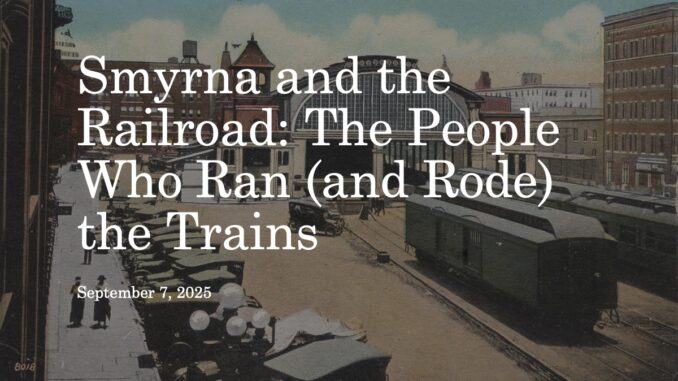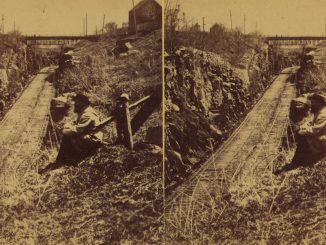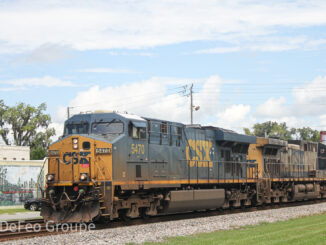
The young man was pinned beneath the boiler of a wrecked train. Told by his co-worker that there was nothing to be done to help him, Richard McClain awaited his fate with one stoic line: “My God, help me!”
McClain died right there beside the tracks in 1890.
Decades before that, an enslaved man fought a train fire on the Western & Atlantic Railroad bridge over the Chattahoochee River. A pre-Civil War state legislature was so thankful for Ransom Montgomery’s heroics, they purchased him from his enslaver, awarded him a plot of land and even a monthly stipend for the rest of his life.
At the Smyrna Library’s First Sunday Lecture Series, sponsored by Friends of Smyrna Library, on Sept. 7, train expert Todd DeFeo, publisher of Railfanning.org, brought to life so many of the stories waiting to be discovered in the pages of the past.
“These stories aren’t just about railroads that go from point A to point B,” DeFeo said. “They’re about the people who were on those trains. The people who made up the communities we call home today.”
They happened on the stretch of road we drive every day around Dobbins Air Reserve Base. Or across the street from the Cumberland Mall.
Most of the witnesses to what happened have long since passed on. But through DeFeo’s research, they reveal a much harder way of life, one in which railroads could often be seemingly indifferent to lives being lost, and the people working for them who had to put aside their mourning to go on with making a living.
Like John Wesley Segars, who continued working for decades despite being present for the death of his young half-sister as she tried to cross the tracks.
Those running the railroads seemed to have a singular focus: the bottom line.
Consider what happened in January 1928, after a collision of two Atlanta Northern Railway interurban cars north of Smyrna that killed half a dozen people. DeFeo highlighted a letter he found in the Georgia Archives that revealed leaders touted the fact that none of the victims were wealthy. That meant the settlement wouldn’t cost them as much money because the victims, as described in the document, had “…none of the high earning capacity or more than ordinary standing in the respective communities where they live.”
That was the “fortunate” finding company officials included in an internal document about the accident.
DeFeo has written several books about the era. And he says more often than not, that was the viewpoint of so many in power at the time, and the way of life that was accepted by the people living it.
“History is everywhere we look,” DeFeo said. “Sometimes we forget it. We forget the names of the people tied to history, whether they intended to be part of the story or are connected to it by fate.”




